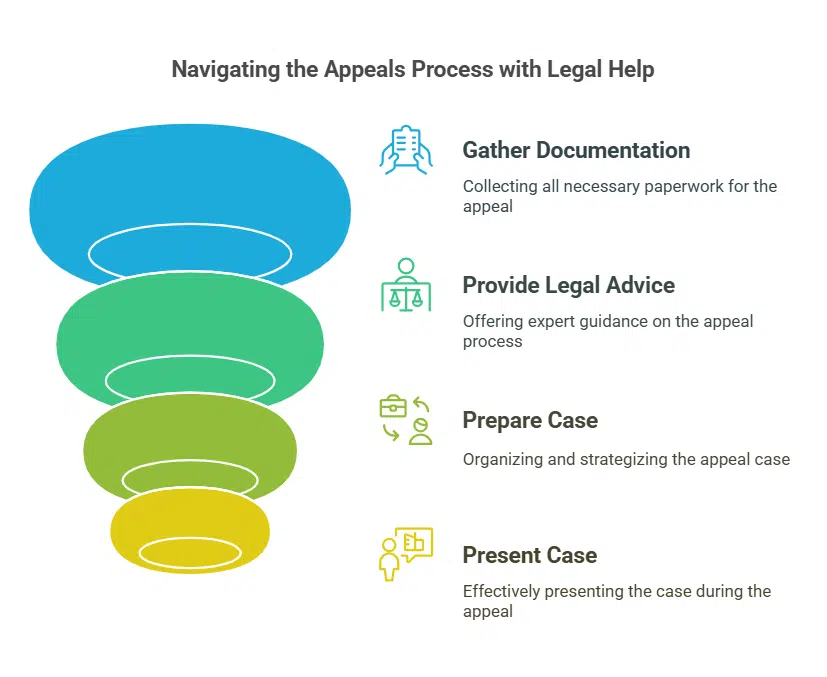If your VA disability claim is denied, don’t panic—you have options. First, review the denial letter to understand why. Gather additional medical evidence or service records to strengthen your case. You can file a Supplemental Claim, request a Higher-Level Review, or appeal to the Board of Veterans’ Appeals. Deadlines apply, so act quickly. Consider seeking help from a veterans’ service organization or an attorney for guidance.
Obtaining benefits for veterans can be challenging as many applicants encounter disappointment when their VA disability claims are rejected. This can cause confusion and doubt about the course of action to follow through. It is a complex process of effectively understanding and addressing reasons for denial. This is crucial for navigating the various challenges with ample support from helpful insights provided by legal experts from Chisholm Chisholm & Kilpatrick LTD. This article explores the steps to take if faced with your VA claim being denied.
Understanding the Reasons for Denial
Before we proceed further, it’s important to grasp the reasons behind a claim being denied. It could be due to factors such as medical proof, a lack of service connection, or incomplete documentation. Getting acquainted with these aspects can offer insights into handling the matter efficiently. Taking a look at the letter can reveal the specific grounds for rejection, enabling a more targeted and effective response.
Gathering Additional Evidence
After understanding why the denial occurred, it’s important to gather evidence to make the case stronger and clearer in your favor. The medical records are crucial in showing how severe the disability is and how it relates to your time in the military. Receiving testimonies from healthcare providers or getting assessments can offer the needed backing for your appeal.
Revisiting the Service Connection
An issue often encountered with denied claims is the need to demonstrate a connection to service clearly and convincingly. The crucial step involves confirming a link, between the disabled party and military duty by examining medical records as well as any supporting documents that emphasize this relationship. Addressing any inconsistencies or offering details about service-related events can help strengthen the claim’s validity.
Seeking Assistance from a Representative
Navigating through the appeals procedure may feel daunting. However, getting help from a legal representative can have a positive impact. Veterans Service Organizations [VSOs] accredited lawyers or claims agents have the knowledge to lead applicants through the intricacies of the process. These experts can provide advice, help gather required paperwork and effectively present the case during the appeal process.
Filing a Notice of Disagreement
When you’re looking to challenge a decision, starting with a Notice of Dispute [NoD] marks the beginning of the process. This paper expresses your discontent with the ruling and shows an intention to challenge it. It’s important to send in the NoD within the specified time frame to avoid forfeiting your right to appeal. Explaining clearly why you disagree and pointing out supporting facts can bolster your argument.
Requesting a Review
Candidates may choose to seek a reassessment of their claim through either a Higher Level Review or a hearing by the Board of Veterans Appeals [BVA]. During a Higher Level Review process, a senior VA official will reevaluate the decision made on the claim. Comparatively, a BVA hearing offers a review of the case and permits the introduction of fresh evidence. The decision on which review method to opt for may significantly affect the outcome of the appeal.
Maintaining Patience and Persistence
Navigating the appeals procedure can take time and effort since it demands patience and determination on your part. Recognizing that delays are not uncommon is crucial in setting expectations. Keeping yourself updated on the progress of your appeal and engaging in discussions with your representatives can ease some of the stress that comes with waiting.
Exploring Additional Resources
There are plenty of resources to help veterans throughout the appeal process. There are forums, support groups, and informative websites that can offer useful advice and connect people with others who have experienced similar difficulties. Interacting with these resources can give hope and practical tips that build a sense of belonging and common goals among veterans.
Takeaways
Dealing with a rejected VA disability claim can feel discouraging. However, comprehending the rationale for the decision and taking measures can pave the way for a positive resolution. To navigate the appeals process effectively, it is crucial to gather evidence and seek help from experts while exploring avenues for review. By staying patient and making use of the resources at hand, veterans can enhance their prospects of obtaining the benefits they are entitled to.






































